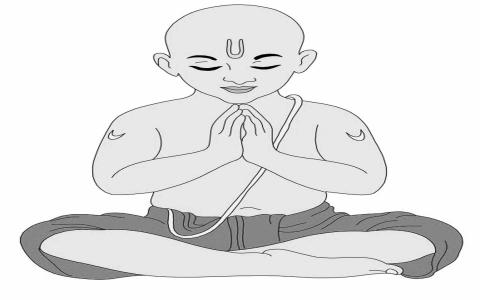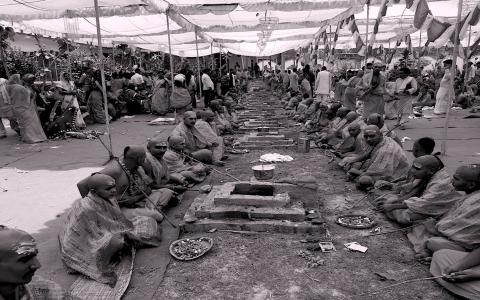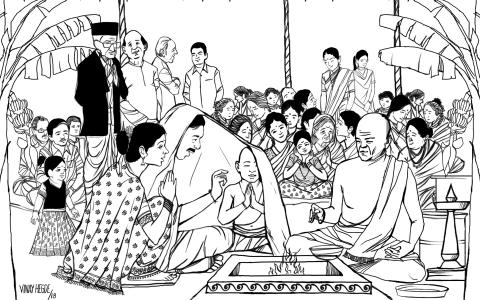
Before we embark on a study of our traditional literature—what we call śruti and smṛti—with our modern conception of history, seeking the absolute chronology of a certain treatise and the relative chronologies of a set of treatises, we must acquaint ourselves with both the Indian conception of history as well as the traditional accounts of our history.
The Indian view of history was to emphasize value over fact. Since the ancient Indians...

The word ‘upanayana’ means ‘leading closer’ or ‘taking nearer.’ It could mean ‘leading closer to wisdom’ or ‘taking near the ācārya for the sake of learning.’[1] Another meaning of the word ‘upanayana’ is ‘additional eye’ or ‘the eye of knowledge.’ It is variously called ‘upayana,’[2] ‘brahmopadeśa,’ ‘upānaya,’ ‘mauñjī-bandhana,’ and ‘baṭu-karaṇa,’ ‘vrata-bandha.’[3] In any case, it refers to taking a young boy formally into student-hood.[4] The...

The word ‘saṃskāra’ has no single-word equivalent in English; it has many meanings including ‘refinement,’ ‘cultivation,’ ‘perfection,’ ‘embellishment,’ ‘consecration,’ ‘education,’ ‘positive transformation,’ ‘effect of past deeds,’ etc. In general, it refers to ‘doing something well’ or ‘improving upon something while removing what is undesirable.’
Swami Harshananda says, “The word ‘saṃskāra’ literally means ‘to do well.’ A block of stone when...

Every society will have its own view of what is a significant event in the life of a person living in that geographical region and in that period in time. What remains true for all time and for all people is the fact that our life spreads from before our physical birth all the way to the future after our physical death.
When a couple feel the need to have offspring, that very moment a child is born, as an idea. After conception, the tiny embryo...

You and I are constantly changing.
Throughout our lives, we change in many ways: at the level of the body, in the emotional sphere, in the mental realm, in our various relationships with people, the roles that we play in society, and in many other ways.
This change is continuous and unstoppable, yet we recognize certain ‘phases’ in our life. Let us consider education as an example. We learn new things every day but there are definite phases such...
